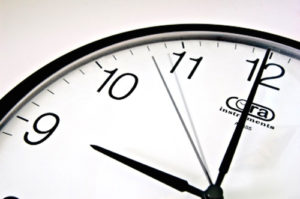Career before family? What are the options for a woman to preserve her fertility?
What options are available to a woman who wishes to become pregnant after undergoing chemotherapy?
Here at the Fertility Institute of Hawaii we strive to provide comprehensive services to not only those who are nearing or already in their 40’s and wish to become parents, but also those who are planning to preserve their fertility due postponement of parenthood to continue with their education, career or even for medical reasons. For women, that may mean cryopreserving their eggs (freezing for use later). For men, it is a matter of freezing sperm. For the purpose of this article we will focus on female fertility.
Much has been written about a woman’s fertility with more and more celebrities making public about their struggles of infertility and options they have used on their journey to parenthood. The mainstream press has given quite a bit of positive attention to career women who have postponed becoming mothers with “egg freezing” including features in Business Week and via NBC news. And, national organizations such as the American Society for Reproductive Medicine (ASRM) offers much online data to support the increase of women in their 40’s becoming first time mothers.
A state by state analysis indicated that women becoming first time parents has increased across the board since the year 2000. NBC reported the following findings: “From 2000 through 2012, 46 states and Washington, D.C., showed an increase in the first birth rate for women aged 35-39. For women age 40-44, rates increased in 31 states as well as Washington, D.C. Some areas including D.C., Minnesota, Nebraska and South Carolina rose 60 percent or more.”
Our staff understands that readers of our articles may be interested in what is involved with preserving one’s fertility which is why we offer the following information.
What is involved in preserving one’s fertility?
First, for a woman to preserve her fertility she should consider “egg freezing” also known as “oocyte freezing”, if over the age of 30.
Technology has made rapid changes over the last few years. Up until recently, women traditionally froze unfertilized eggs using a process that was known as a slow freeze method. Because eggs consist of a fair amount of water there was a degree of crystallization that would occur during this slow process. This phenomenon sometimes would compromise the integrity of the unfertilized eggs and cause them to not be viable. However, new techniques known as oocyte vitrification “flash freezes” the eggs making them much more stable and usable.
How are the eggs retrieved?
Once a woman has decided to make the step to freeze her eggs, she receives a thorough medical evaluation and options are discussed with a fertility specialist. If preservation of eggs is considered a viable option then the patient is placed on hormone injections in order to ready her body for egg retrieval of mature eggs. With the use of a guided transvaginal ultrasound the eggs are retrieved and then subjected to a “flash freeze” – vitrification. A type of ‘anti-freeze’ is also applied to the process in order to keep the eggs from crystalizing and compromising the eggs’ integrity. The eggs are then kept in the “deep freeze” for up to ten years or perhaps even longer!
 What happens once a woman decides to use her frozen eggs to become pregnant?
What happens once a woman decides to use her frozen eggs to become pregnant?
The eggs are thawed and then fertilized using a partner’s sperm or donor sperm which is injected directly in to the egg. This process is known as ICSI – intracytoplasmic sperm injection. Often this process is part of an IVF treatment. Moreover, genetic testing can be conducted to be sure of the health of the embryo prior to placement in to the uterus. This technique to look at the chromosomal status of an embryo is Preimplantation Genetic Diagnosis (PGD) and offered here with the state of the art technology at the Fertility Institute of Hawaii. We offer this video for more information about PGD.
What about preserving fertility before undergoing cancer treatment?
Annually, more than 150,000 Americans are diagnosed with cancer during their reproductive years (younger than age 45). Cancer treatments such as surgery, radiation, chemotherapy and targeted and hormonal therapies can directly or indirectly cause infertility.
~Livestrong guide for female cancer patients
The Fertility Institute of Hawaii works cooperatively with our cancer patients who are seeking options for later conception. We understand that many are concerned over the potential loss of becoming a biological parent to a future child as a result of undergoing cancer treatment- such as chemotherapy. Livestrong provides excellent resources to help guide those who are in this position.
There are times when a patient may opt for egg donation vs. using one’s own eggs to conceive a child post- cancer treatment. This video helps to explain the reasoning and process behind egg donation.
We welcome talking further on this topic with those who are interested in learning more about preserving fertility.